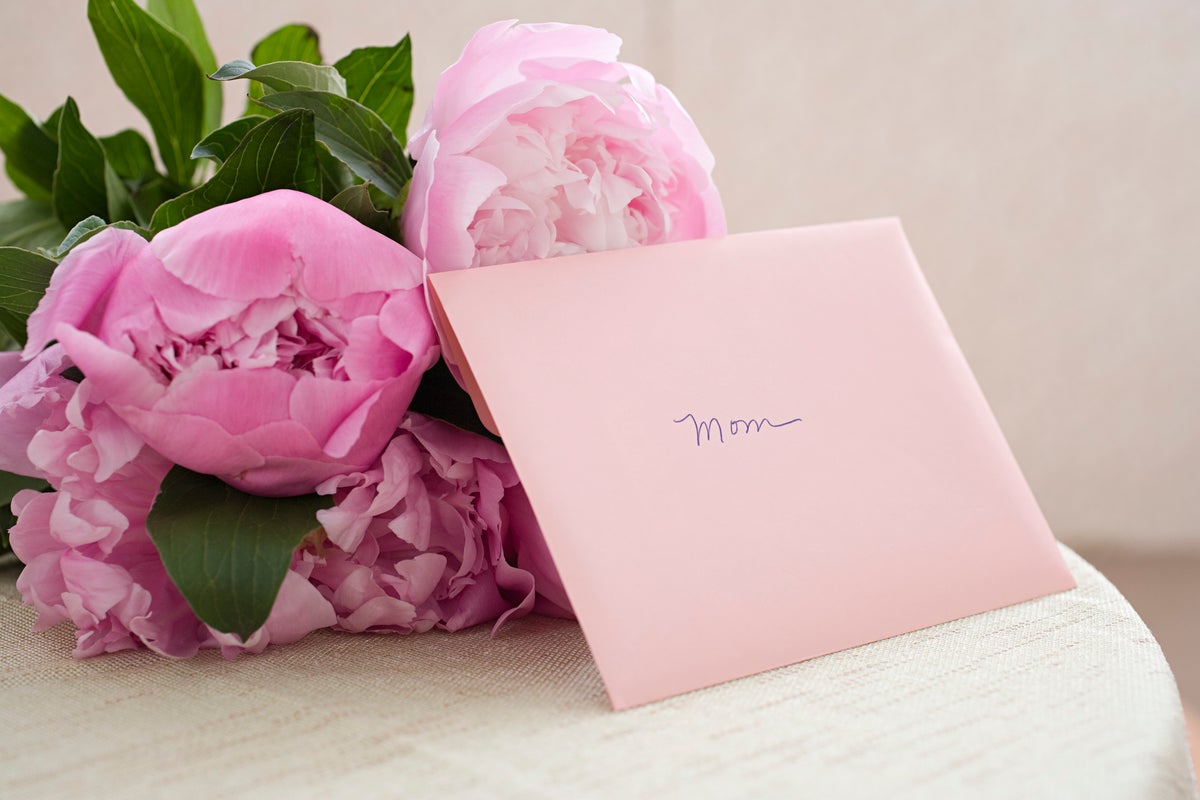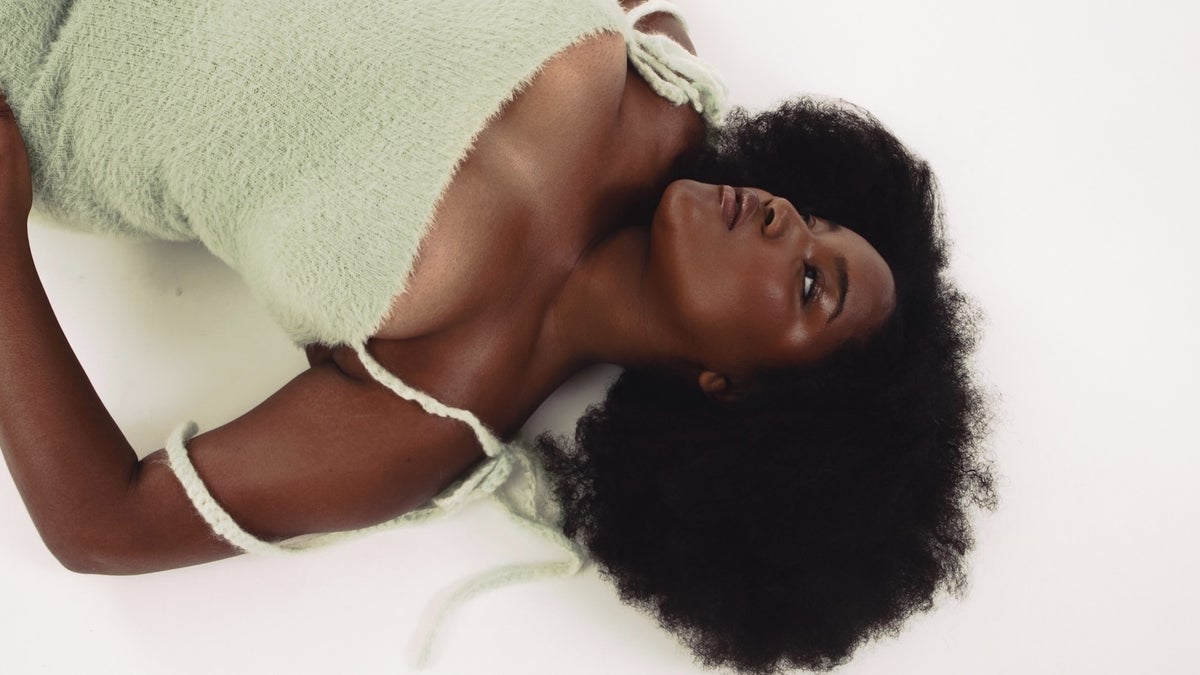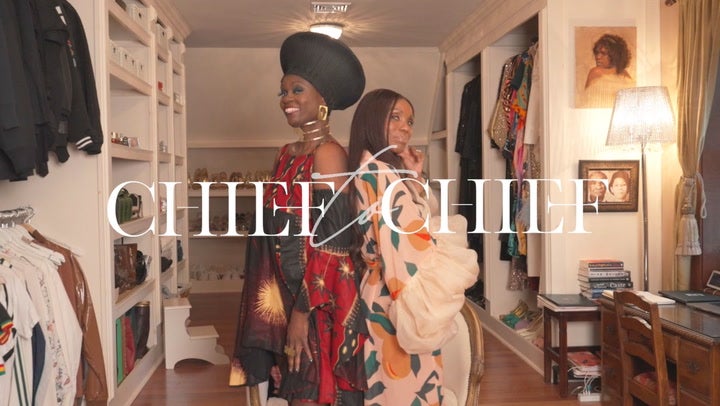
You may know his face, especially if you’re a Ted Lasso fan. But Toheeb Jimoh is ready to become a household name.
The 25-year-old actor is starring in the final season of the hit Apple TV+ dramedy and kicking off the premiere season of Prime Video’s new sci-fi thriller The Power simultaneously this Spring.
The Power follows an alternate reality where young women spontaneously develop the power to shoot electricity from their hands at will, giving women worldwide an unprecedented physical advantage and autonomy. Jimoh plays against an all-star cast, including Toni Collette and John Leguizamo as Tunde Ojo, an aspiring video journalist who travels the world documenting the new phenomenon and what it eventually means for the world’s power structure.
ESSENCE spoke with the actor about his journey (so far) through the industry, giving a unique voice to the experiences of British Nigerians through his roles, and landing two big roles almost instantly after drama school, and deciding how much of an “it guy” he truly wants to be.
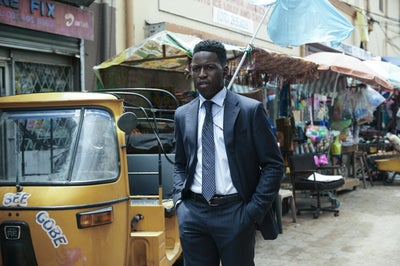
It definitely feels like you’re everywhere right now, being on two high-profile shows on two major streaming platforms. But you’re still relatively new to the industry. Can you tell us a little bit about how you got your start?
I (begrudgingly) went to a performing arts school because my mom forced me to go to it, one that was really far from school, and none of my friends were going to this weird school.
As I got older, I just realized that I enjoyed it, and all the other things that I thought I was supposed to be doing, I wasn’t enjoying as much. I had really great teachers and one of them, in particular, pulled me into his office one day and just showed me the blueprint and gave me this pathway, and was like, “This is something you can do if you want to.” I didn’t know it was possible. I thought if you wanted to be an actor, you had to be born in LA or have parents who are in the industry or something like that. I didn’t know it was possible for a “regular kid” like me to do it.
I got this blueprint and this man told me about drama schools and performing arts colleges, and I applied to them and decided, all right, cool, this is what I want to do, I want to do something where I can wake up every day and enjoy myself. I also wanted to use the power of the media to spread knowledge and share culture and affect hearts and minds in a way that the media can.
I graduated from drama school in 2018 and got the Ted Lasso gig in 2019.
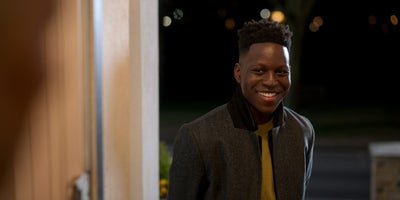
So after a breakout hit like Ted Lasso, what drew you to Tunde in Prime Video’s The Power?
I love the world that Naomi [Alderman, writer of the source novel of the same name] created, and I thought this sci-fi element and this electricity ability was a really interesting and unique way to explore the power dynamics in our societies. But I also loved Tunde. He is growing into a man in this new world and doesn’t have one of the main male archetypical traits that men have always had, and so has to figure out how to define his masculinity for himself and how he wants that to be in this new world, but also his thoughts change. And as a young actor, you don’t usually get the opportunity to play characters that have this many diverse thoughts.
What do you think society would be like if women suddenly got a physical upper hand?
As much as I’d like to believe we’d enter into this matriarchal utopia, I think women are just as complicated and nuanced as men are, and I think that’s the point of the show: one group having an upper hand isn’t ideal. Equality is the main thing. So, I don’t know what that world would look like, but I think it’d be naive of me to sit here and say it’d be sunshine and rainbows. I think it’d be just as complicated, and gritty, and good, and bad, and murky, and gray as our current world is.
In the roles that we’ve seen you in, you’ve always portrayed a British Nigerian. Many British actors end up playing American roles or Africans from anywhere else in the diaspora other than where they hail from. Even in Ted Lasso, I’ve read that your character was supposed to be Ghanaian but then they made Sam Nigerian specifically to fit you. Is it important for you to honor your heritage through the characters you play?
It’s definitely been an important thing for me. I got both of these jobs in 2019 in pretty close succession, so I was like, “I want to play a Nigerian,” and then suddenly the universe handed me two roles where I could do that. It’s part of why I wanted to be an actor in the first place.
When I was younger, I really didn’t like the way Nigerians were portrayed in the media, and usually, when Nigerians were being portrayed in the media, Nigerians had nothing to do with it, so it was always an outside perspective of what our culture was and what our people were like. And so coming into the industry, I really wanted to have some kind of ownership on how Nigerians were viewed and how our stories were told.
[In any role], I just want to play characters that speak to the culture that I’ve grown up in, and the culture that I’m a part of, and the culture that has made me feel seen and heard and share that and have some ownership with it.
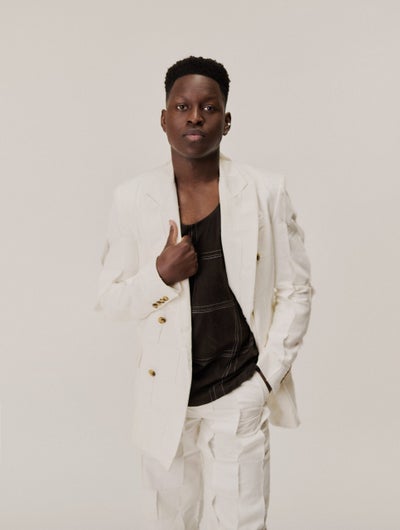
Since you’re a relatively new actor and we haven’t seen you in the public eye much outside of your roles, do you ever wish you were more “known” and with a public persona? Are there things you wish fans knew about your personal life?
To be honest, I think my answer to that is no. I think there’s something really cool about not knowing that much about actors, I think. And so when you see them in a role, you can just see the character they play as opposed to who they are and what they do or who they’re dating or where they live. I’m still wrestling with it, but I feel like there’s something really good about not knowing that much about actors.



